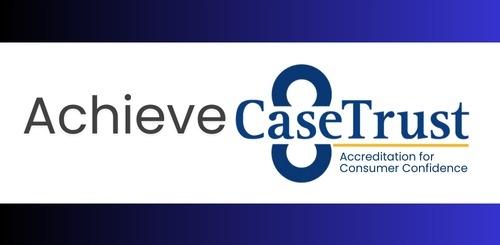Ensuring Safety and Trust in the Renovation Industry: A Guide to bizSAFE Certification and CaseTrust Accreditation

In today’s competitive renovation industry, earning the trust of customers and ensuring workplace safety are crucial to long-term success. Homeowners and corporate clients alike demand not only top-notch craftsmanship but also assurance that businesses they engage are responsible, reliable, and compliant with regulatory standards. Two certifications that are highly relevant for renovation contractors in Singapore are the bizSAFE certification and the CaseTrust accreditation. These credentials serve as vital indicators of professionalism, accountability, and operational excellence.
Understanding bizSAFE Certification Requirements
The bizSAFE certification requirements are designed to guide companies, particularly Small and Medium Enterprises (SMEs), in building up their workplace safety and health (WSH) capabilities. Administered by the Workplace Safety and Health Council (WSHC), the bizSAFE program consists of five progressive levels, starting from Level 1 and culminating in Level STAR.
To embark on the bizSAFE journey, companies must first get top management to attend a bizSAFE Level 1 workshop, which emphasizes the importance of WSH. From there, companies progress through levels by developing and implementing risk management plans, appointing a Risk Management (RM) Champion, and eventually aligning with international standards like ISO 45001. Level 3 is a key milestone that requires external audit and is often a minimum requirement for participating in public or government-linked projects.
In the renovation sector, attaining bizSAFE Level 3 or higher is increasingly seen as a basic standard. It reflects a commitment to protecting both workers and clients from hazards such as falls, electrical risks, and exposure to harmful substances often present at renovation sites.
Why bizSAFE Matters for Renovation Businesses
Renovation work is inherently hazardous. It involves working at heights, using power tools, and dealing with structural alterations. For a renovation business, meeting bizSAFE certification requirements isn’t just about compliance—it’s about fostering a culture of safety and minimizing incidents that could disrupt operations or lead to costly legal issues.
Clients, especially commercial property owners and government agencies, are also more likely to engage companies that are bizSAFE-certified because it indicates a structured and proactive approach to safety. Moreover, bizSAFE-certified companies often benefit from lower insurance premiums, improved staff morale, and reduced absenteeism due to injuries.
Gaining Trust Through CaseTrust Accreditation
While bizSAFE focuses on safety and risk management, CaseTrust accreditation for renovation business addresses consumer protection and service excellence. Managed by the Consumers Association of Singapore (CASE), the CaseTrust scheme is especially significant for B2C renovation firms that serve homeowners.
CaseTrust accreditation assures clients that a renovation business has fair trading practices, transparent pricing, proper dispute resolution mechanisms, and sound financial integrity. One key requirement is that the business must offer a performance bond or deposit insurance, protecting customer payments in case of incomplete or unsatisfactory work. This is particularly important in an industry where disputes over project delays and workmanship are common.
To qualify, businesses must demonstrate proper documentation of processes, maintain a track record of customer satisfaction, and train staff in customer service. The accreditation process is rigorous, but the benefits—such as enhanced credibility, increased referrals, and eligibility to be listed on trusted platforms—are well worth the effort.
The Competitive Edge of Dual Certification
Having both bizSAFE certification and CaseTrust accreditation gives renovation companies a significant competitive edge. While one ensures internal safety and regulatory compliance, the other builds external trust and enhances customer confidence. Together, they position a business as both responsible and reputable.
For homeowners, this dual assurance means they can entrust their homes to contractors who not only value quality and safety but also uphold ethical business practices. For businesses, it opens doors to new market segments, better partnerships, and long-term sustainability.
Conclusion
In a demanding industry like renovation, success depends not only on technical skills but also on how well a business manages safety and customer relationships. By meeting bizSAFE certification requirements and securing CaseTrust accreditation for renovation business, companies demonstrate a firm commitment to excellence. These certifications aren’t just badges—they’re a promise of quality, reliability, and professionalism in every project delivered.
- Vibnix Blog
- Politics
- News
- Liberia News
- Entertainment
- Technology
- Education
- Art
- Causes
- Crafts
- Dance
- Drinks
- Film
- Fitness
- Food
- Games
- Gardening
- Health
- Home
- Literature
- Music
- Networking
- Other
- Party
- Religion
- Shopping
- Sports
- Theater
- Wellness


